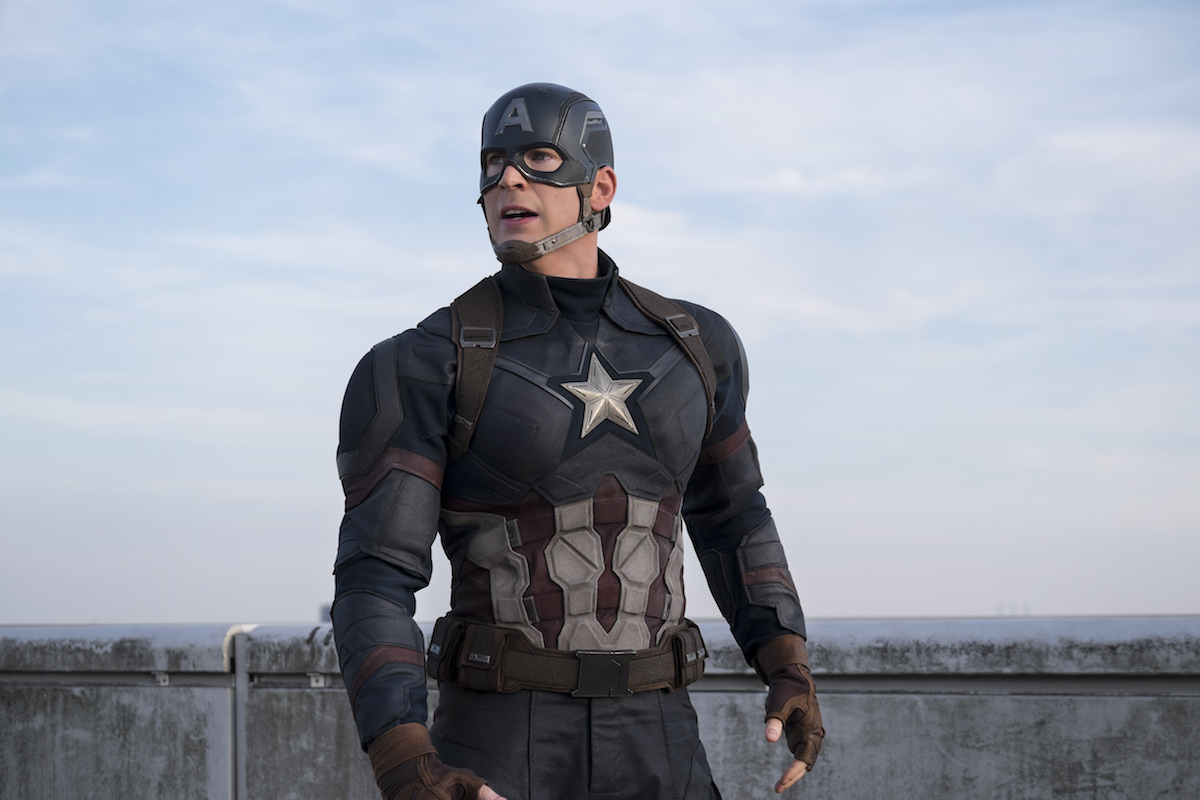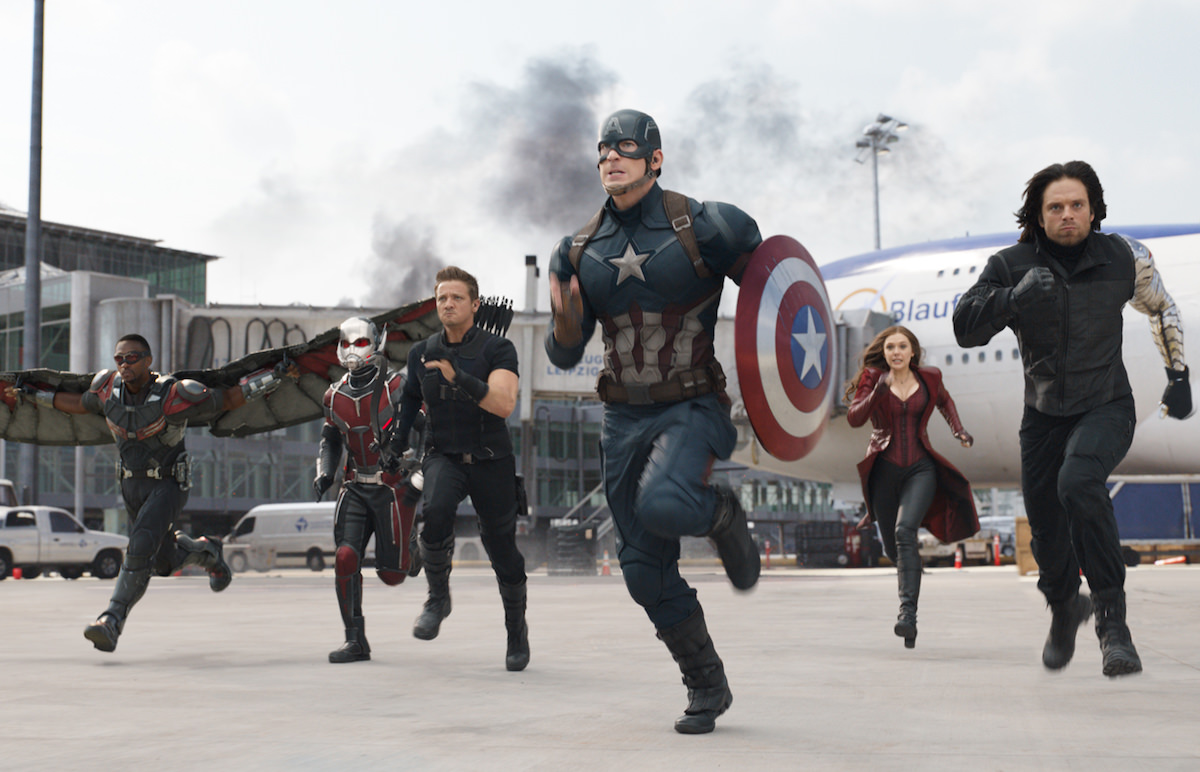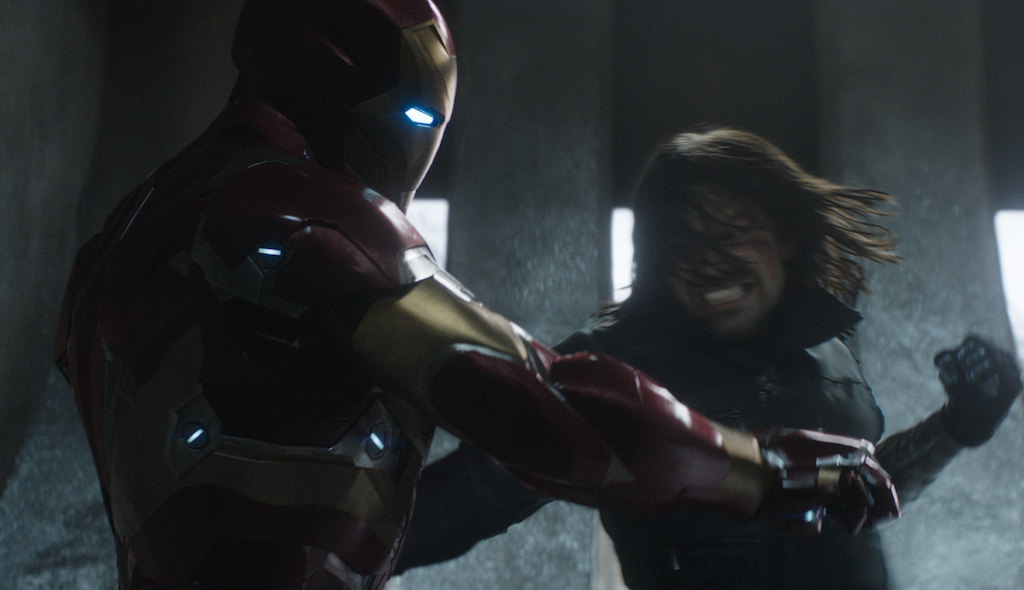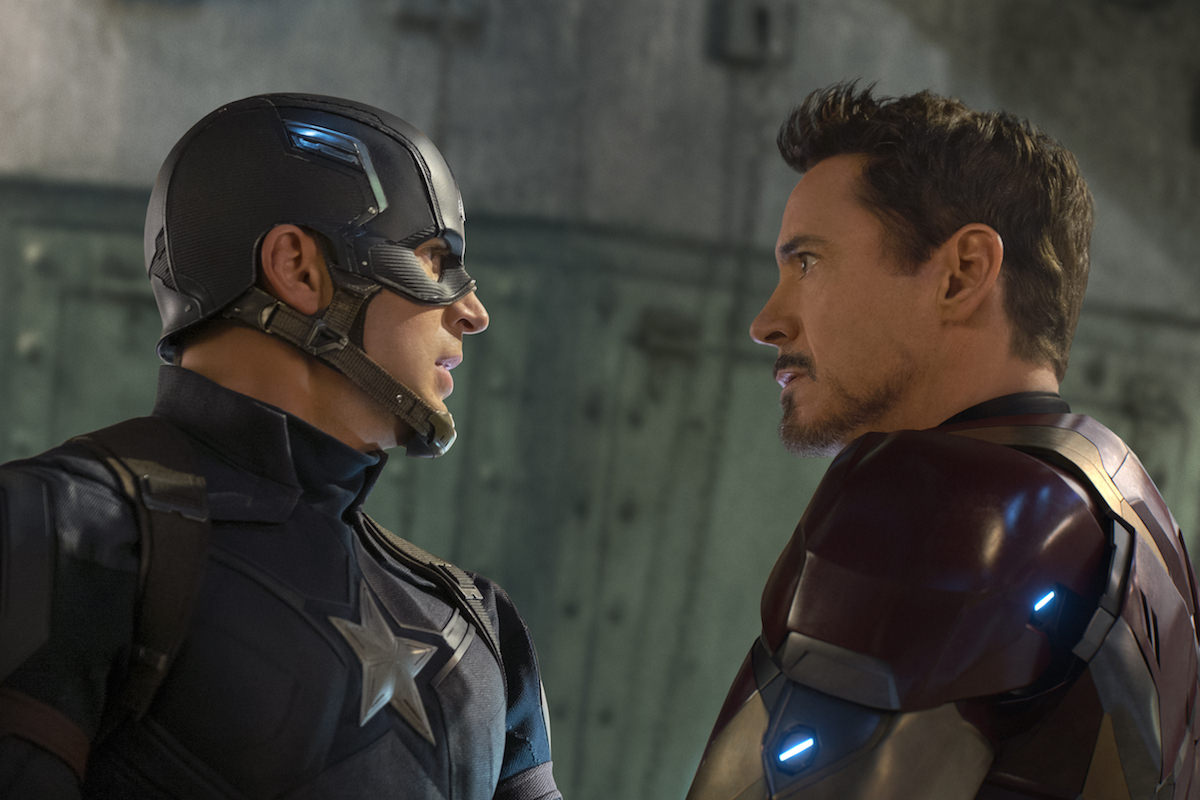Captain America: Civil War Directors Joe & Anthony Russo
As the much-anticipated third installment of Marvel’s Captain America franchise hits theaters today, we catch up with directors Anthony and Joe Russo. The brothers discuss how they addressed the challenge of cramming so many of Marvel’s superheroes into Captain America: Civil War, how they subverted the genre by creating a film with no clear villain and playing good cop bad cop on set.
Captain America: Civil War is getting great reviews. Given how hard it is to create something with mass appeal that also satisfies the critics- it might be hard to dissect the magic- but how do you think that you managed to do that?
Joe: It's a fidelity to character. We really, really care about character. We grew up at a local Cinema Tech in Cleveland, we were obsessed with foreign films when we were growing up in our house. Our language comes from those films. I don't know if there is any particular magic because we've certainly had successes in our careers, and we've had failures in our careers. One thing I've noticed that is a key metric for us, in terms of success, is listening to our own internal voice about what it is that we want. Any time that we try to anticipate what the audience wants, we fail. Our best successes, shows like Arrested Development or Community, are very personal. We made very personal choices with the content. We're doing the same with these movies. I grew up collecting comic books, understanding the core mythology of these characters. I loved it as a kid. We're trying to honor that core mythology, but also to modernize it and give it a real immediacy.
I understand that you pushed the civil war theme from the beginning of the process of developing this installment. Why did you choose to do that?
Anthony: Once it became clear that Marvel wanted us to do the next movie and we wanted to do the next movie, we started to talk with Markus and McFeely, the writers, about all the possibilities about where we could go. At the end of The Winter Soldier, the relationship between Cap and Bucky, it's a very powerful one. While Cap made a breakthrough with him, an important breakthrough at the very end of that movie, it's still very much unresolved what the future of that relationship is going to be and what the future of the Winter Soldier held. Whether or not this friend that Cap believed was inside the Winter Soldier was still there. We knew we were going to carry that story forward. That's a very, very powerful personal relationship. I think the fact that Civil War was so specifically about complicating Cap's situation with other very strong personal relationships, that seemed to us to be a worthy counterpoint to his Bucky relationship, because it was all based on his personal relationships. I think that's one thing that drew us to the concept initially.
Also, Captain America has political dimensions to him, because the character was conceived with that purpose, and we liked to play with those in Winter Soldier. Civil War allowed us to carry those political issues forward, as well. It worked out a number of layers for us.

Chris Evans is Captain America. Courtesy Walt Disney/Marvel
Do you think that because the world that you create exists closer to reality than some superhero films, did that help you explore storylines that reflect what's happening in the world?
Joe: Without question.
Anthony: Very much.
Joe: It's important to us that we do that.
Anthony: Yeah. The criticism that is leveled against the Avengers in this movie is very analogous to our world situation today. The idea that there are superpowers that can go where they want. In the movie these superheroes can go where they want, do what they want, and even though they have the best intentions, there's some cost to what they're doing. There's some push back against that kind of behavior. There’s a similar thing happening in the real world with superpowers. We're in a situation now where we're very much dealing with, even though the United States has the best intentions, going wherever they want and doing what they want.
Joe: Says it has the best intentions.
Anthony: There is a payback, there is a cost to that kind of behavior that they're dealing with.
Joe: Collateral damage.
Anthony: Yeah and notions of vengeance. Because Cap is, in some ways, the most normal guy of the spectrum of superheroes, we love tethering him to reality. That's just one way we could do it in this movie.

Team Cap heads into battle. Courtesy Walt Disney/Marvel
You've got such an incredible array of the Marvel superheroes coming together in this movie? How did you manage to give them all a share of the action but still have a cohesive narrative arc?
Joe: We had a lot of experience working on our shows like Arrested Development, Community, Happy Endings, which are all ensemble shows in a very compressed storytelling format. Sometimes, we'd have seven, eight, nine characters that you're tracking through an episode. It requires a lot of discipline on the scripts side to make sure that you spend time in the room talking through each character as if it were their movie and you understand how they change by the end of the film. That can be an incremental change, but there has to be some movement in order to advance, or they shouldn't be in the movie. I think, it is really just sourcing out from a storytelling standpoint, what their moments are.
What about your working relationship? How does that work on set? Do you have defined roles?
Anthony: I imagine for every directing team it's different. In the same way that every director is different from every other individual director. Our process is very much that we don't divide roles. We like to put both of our energies and brains on everything. We have a process where we just see through things together through a lot of dialogue and a lot of arguing. What we want our vision to be. How best to achieve it. That's very much our process.
Do you do good cop, bad cop?
Joe: Always.
Anthony: Yeah, we're very cagey about that, but yes.
Joe: We've been doing this a long time.
Do you swap between the good cop and the bad cop?
Joe: Yeah, it just depends on what the issue is.
Anthony: It's more effective that way.
Keep ‘em guessing.
Anthony: Yeah, exactly.
You’ve said that this film subverts the expectations of the superhero genre. Can you just tell me a little bit about in which ways you think that that's the case?
Joe: There's a very specific one. It's that there's no true villain in the movie. The villain has a very empathetic agenda. He certainly does things that aren't empathetic, but his agenda's empathetic. In some ways, you could say the villain actually wins the movie. So that subverts expectations. The third act, we very consciously steer you towards a plot point that is traditional and predictable and then pull the rug out from under you in respect to that plot point and marginalize it dramatically. It's playing with the standard model that, the villain's introduced in the first act, hero's introduced in the first act. Second act, they come into conflict with each other. Third act, hero defeats the villain. That's not the case in this movie. It subverts that structure.

A central conflict in the film lies between Iron Man and the Winter Soldier. Courtesy Walt Disney/Marvel
The audience member kind of feels conflicted?
Joe: Exactly. The intent was that you feel very conflicted, that you not know who's right, because a lot of the issues that we're bringing up, the themes that we're dealing with in the movie, are unanswerable questions. They're very complicated. At the end of the day, you're going to walk out of the theater with a group of five people and hopefully be arguing about whether Cap was right, Tony was right, the villain was right. What you believe. It's interesting seeing people's responses to the movie, because it tends to be pretty divided.
The more the superheroes movies that are made, and the more that they are attracting a more diverse range of audience goers, do you think that lets you explore more complicated story lines and reflect the world in a different kind of light?
Joe: Absolutely, for two reasons. Reason one is that, this is an adventurous style, a new style of storytelling, which is this long form serialization being applied to movies, but in a way that hasn't been done in television in the past because you're taking characters who are the leads of their own franchises and you're interweaving them. That would be like taking characters from multiple TV shows and interweaving them. That's being done on a scale that hasn't been done before.
Well, they did that with 90210 and Melrose Place, on a smaller scale.
Joe: They did?
Anthony: That's awesome.
The characters crossed over in the beginning.
Joe: Oh so they handed the story off?
Yep.
Anthony: There you go.
Joe: [laughs] We have a really prestigious model that we're drawing on with these movies! I think that because this interconnected storytelling, it allows you to tell different kinds of stories. We've all known movies to be close-ended experiences for the last hundred years. I think that's changing radically and for a lot of reasons. I think viewer tastes are changing, viewer habits are changing. I think the internet is changing the way that we perceive content because it's becoming about a cultural conversation. Everybody wants to participate in that conversation and they want to have a long-form conversation. The way you champion sports teams, you want to champion characters.

Cap v Iron Man, the film's main conflict. Courtesy Walt Disney/Marvel
They want to be able follow their favorite character?
They want to be able to follow them, and they want to commit on an emotional level, for years at a time. This generation, once an older generation ages out and this newer generation ages in, storytelling's just going to keep changing faster and faster. I have kids. I look at their viewing habits on a daily basis. They average about four minutes. The way that they absorb content is very different than the way we absorb content. Their YouTube personalities and Vine personalities are more important to them than movie stars are. Those people are inciting the cultural conversation.
Then why are people still going to movies that are two and a half hours long?
Joe: Why are they going? It just depends on what kind of a story you're telling. Something like Civil War is two and a half hours long, but it's bringing together all these characters that they've been invested in since 2008. For them, they want to participate in that cultural conversation. They want to talk about how these characters are advancing, how this is reflective of their life, and they want to be on Twitter or Facebook or Instagram that Friday night when the movie opens talking about it. Either championing or not championing it. Or championing the characters that they care about or that the predictions that they made about the storytelling came true.
Anthony: Engaging people in dialogue about it.
Joe: I think we're on the cusp, and I think Marvel is just being predictive about how a narrative will change moving forward. I think we'll introduce technology, like virtual reality, which is fully-immersive and does not have to be a two-hour story, and, in fact, can be, if you want it to be, can be a year long story that you engage in every day when you put the headset on. What we've traditionally known as the film medium will change, and that's exciting. Everything's cyclical. It doesn't have to be a two-hour format for the next hundred years just because it was that for the last hundred years.
It's also exciting that the traditional mold of the superhero is changing with the Wonder Woman and Captain Marvel, both female-led superhero movies coming out, as well as Black Panther. I also read that you guys were enthusiastic about the possibility of a LGBT superhero character. Do you just see the landscape becoming more and more diverse?
Anthony: One hundred percent.
Joe: It has to become more diverse. One, because that's what's truthful. That's what the world is. You want to reflect it. If we're going to say that we're making mass-appeal movies, then we have to make movies that are mass-appeal. We have to represent all the point of views that exist in the world. That's invaluable. It's sad that Hollywood lags behind other industries because it's such a visible industry. I think that it's incumbent upon us as filmmakers and it’s incumbent upon studios, the storytellers, to keep advancing diversification.



